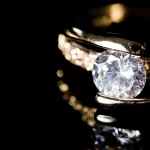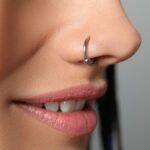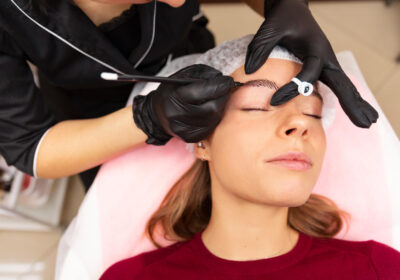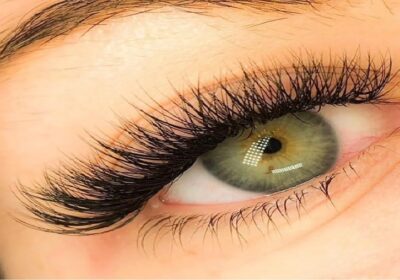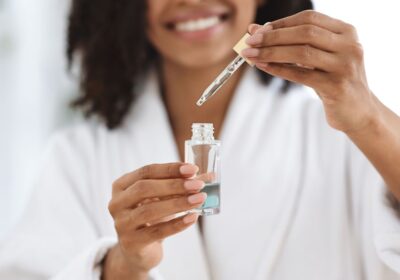
Why Must You Get The Best Cleansers For Acne?
There will always be hiccups on the road to having healthy, happy skin, even though, generally speaking, our skincare regimens are considerably better than they were a few years ago. We’re referring to breakouts and pimples.
There are numerous elements that can work against us in our quest for clear, glowing skin, but we don’t have a large enough piece of paper to describe them all. These include hormones and a lot of dairy.
A decent acne cleanser for acne-prone skin will help reduce breakouts even if no skincare regimen can promise you’ll never suffer a face eruption again.
But where do I begin? There are many solutions on the market that promise to treat acne-prone skin overnight, but finding the ideal balance between being too oily and being too dry takes time and effort.
What causes acne?
Acne is one of the many bodily functions that can rapidly spiral out of our control. Explains: Genetics are mostly responsible for acne, but environmental factors can also cause or exacerbate it.
What possibly may you be doing incorrectly in regard to your skin? Using occlusive oils, excessive exfoliation, stress, restless sleep, and high-sugar diets all seem to play a role. When spots do appear, rubbing and squeezing them may exacerbate the problem.
The skin’s delicate barrier needs to be replenished over time, so don’t anticipate results right away, even though we adore all the skin transformation videos that appear on our social media.
Can cleansers make acne worse?
No, and yes. Any skincare regimen must include cleansing, but doing so excessively, especially when using exfoliating acids, will only make matters worse.
Best cleansers for acne are crucial because they may ensure that sweat, pollutants, makeup, sunscreen, and other impurities are eliminated from the skin, lowering the likelihood that they will cause inflammation or pore occlusion.
Although acids can help us achieve perfect skin, it’s crucial to choose the appropriate one and use it in the proper proportions. A key component in acne treatments is salicylic acid. Use a cleanser with 2% or less salicylic acid throughout the week.
Another common misconception about skincare holds that those with oily skin should cleanse more frequently than people with dry skin, but this is untrue. Unclean skin is not the source of acne. Cleaning your face twice daily for 30 seconds is recommended if you have acne-prone skin.
How Often Should Someone With Acne Wash Their Face?
Neglecting to cleanse your face does not result in acne. This skin issue is brought on by other things, including germs or fluctuating hormone levels. However, regular cleaning is an important part of your acne treatment regimen.
However, there is such a thing as “too clean” skin. The answer to the question of how often you should wash your face every day is two, according to most experts.
Twice-Daily Washing
It will be sufficient to wash your face in the morning and at night to remove makeup, debris, and excess oil that can cause breakouts. It matters what you use to wash your face.
Your face has delicate skin. Therefore you shouldn’t use abrasive soaps on it. Bar soaps and antibacterial hand soaps shouldn’t be used to acne-prone skin. It would be advantageous if you never applied alcohol to your face.
Not always is strongly preferable. Choose a cleanser instead that makes your skin feel clean but not excessively dry or peeled.
An Unclean Face Does Not Cause Acne
It’s vital to understand that having frequent breakouts does not necessarily indicate that you are not taking good care of your skin.
Skin cells in acne sufferers slough off properly. They are more easily irritated by Propionibacterium acnes, the bacteria that causes acne.
Additionally, hormones affect whether you get acne.
Washing Too Often Can Worsen Acne
Even worse than not washing your face at all can be over-washing your face. Hard scrubbing should also be avoided. All of the beneficial oils that your skin needs to be healthy can be easily stripped away, leaving you with dry, irritated, flaky, and red skin.
The acid mantle can also be dismantled. This layer of defense on the skin is composed of healthy microorganisms, perspiration, and oil. A robust, healthy acid mantle is necessary for healthy skin.
Is there a single exclusion to this? If you get very sweaty or unclean, a third cleansing is advised.
For Acne, Cleaning Is Not Enough
Taking off makeup, extra oil, and debris are all parts of good skin care. It might assist in preventing clogged pores. Even so, treating acne with simply water and a little face wash or soap is ineffective.
Take into account your twice-daily washing as the beginning of your acne treatment. Utilizing a product to treat acne regularly should be the second step.
Start by treating small pimples with over-the-counter acne treatments. The most effective products contain salicylic acid and benzoyl peroxide.
Try to use them regularly for a few weeks to see if it helps things come to a head. Face washes might be advantageous. A handful of the product names and their many formulae are as follows:
Stridex, PanOxyl, Neutrogena, Benzaderm Gel, PanOxy, and Neutrogena
While harsh scrubs won’t help your skin clear up faster, they can irritate it and exacerbate outbreaks. Never forget that freshly cleansed and completely dried skin is ideal for applying for any acne medicine, whether it be over-the-counter or prescribed.
Conclusion
The first thing to understand about your acne is that it’s not caused by how frequently you wash (or don’t wash) your face. However, using the incorrect cleansers and washing too frequently can make matters worse.
Most people only need to shower twice a day unless they get sweaty or dirty. Select a product that won’t bother your skin, please. Try not to scrub too vigorously when you wash. This can rob your skin of healthy oils, dry it out, and exacerbate the situation.
A comprehensive acne treatment plan that also includes either an over-the-counter (OTC) or prescription medicine should include cleansing.








